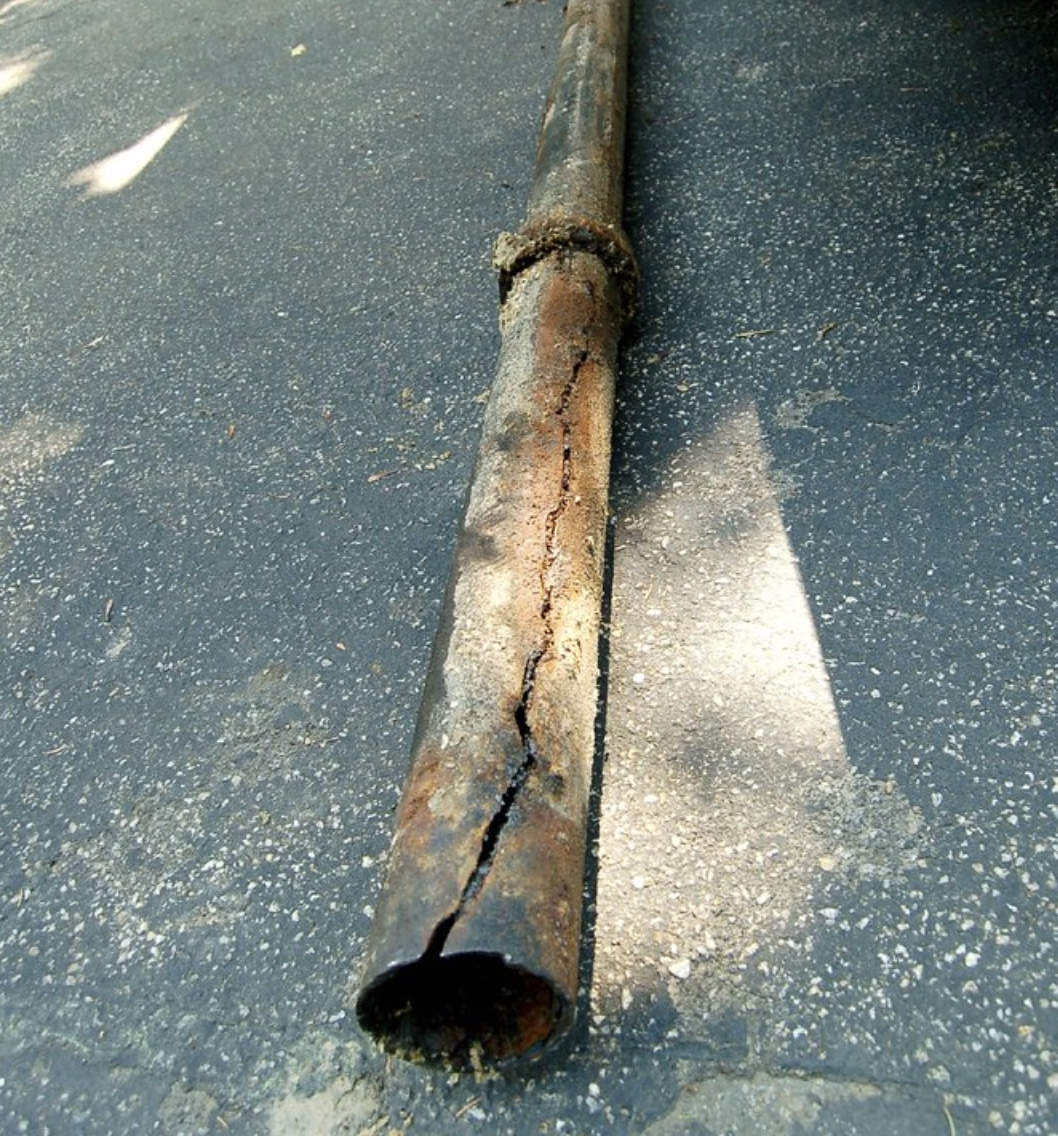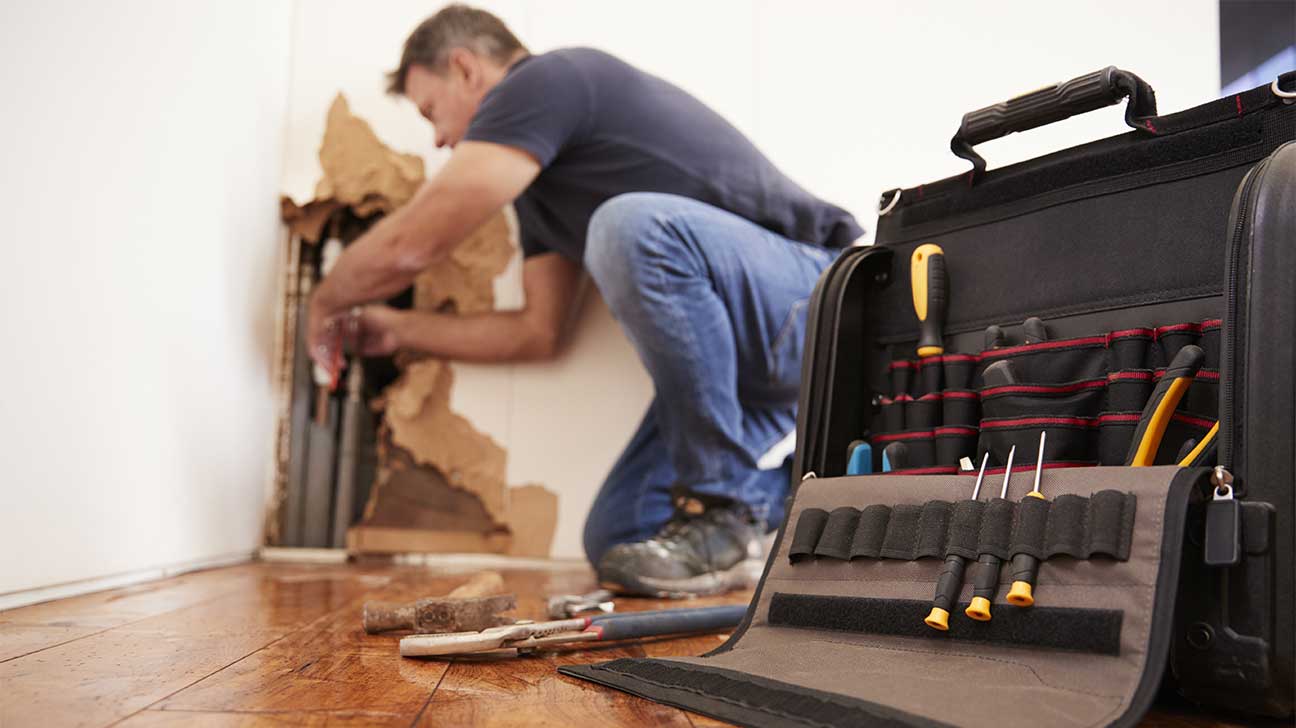Insurance typically does not cover cast iron pipes unless specified in a policy rider. Homeowners should review their insurance coverage carefully.
When it comes to cast iron pipes, homeowners often wonder if insurance will cover potential issues. Understanding insurance coverage for cast iron pipes is crucial for homeowners facing potential plumbing problems. While standard insurance policies usually exclude coverage for cast iron pipes, some insurers offer additional coverage options for this specific issue.
It’s important to consult with your insurance provider to determine if your policy covers cast iron pipe-related damages.

Credit: m.youtube.com
Introduction To Cast Iron Pipes In Home Plumbing
Introduction to Cast Iron Pipes in Home Plumbing
Cast iron pipes have been a staple in home plumbing systems for decades due to their durability and longevity. These pipes were commonly used for drainage, venting, and water distribution. However, over time, issues have emerged, leading homeowners to question whether insurance covers cast iron pipes.
Common Uses Of Cast Iron Pipes
Cast iron pipes were extensively used for drainage, venting, and water distribution in residential and commercial buildings. Their ability to withstand heavy loads and resist corrosion made them a popular choice for plumbing systems.
Issues Associated With Cast Iron Pipes
Despite their initial benefits, cast iron pipes are prone to corrosion, rust, and cracking over time. These issues can lead to leaks, blockages, and ultimately, a compromised plumbing system. As a result, many homeowners are left wondering if their insurance policies cover the repair or replacement of cast iron pipes.
Insurance Basics: Coverage Types
Cast iron pipes are typically covered by homeowners insurance if they are damaged due to a covered peril such as a sudden and accidental water damage. However, if the pipes are old and deteriorated, they may not be covered under your policy.
It’s important to review your coverage and speak with your insurance agent to understand what is and isn’t covered.
Analyzing Insurance Policies For Pipe Coverage
Inspecting insurance policies to assess coverage for cast iron pipes is crucial. Determining if insurance covers these pipes involves careful analysis and understanding of policy details. Consulting with insurance providers is recommended to fully comprehend coverage for such pipe materials.
What To Look For In A Policy
- Check policy for specific mention of cast iron pipes.
- Review coverage limits and exclusions related to pipe issues.
- Ensure damage types (leaks, cracks) are included in policy.
Examples Of Pipe Coverage Clauses
- Some policies cover repair or replacement of damaged pipes.
- Water damage from pipe bursts may be included in coverage.
- Examine if regular maintenance affects coverage in the policy.

Credit: www.vipadjusting.com
Case Studies: Cast Iron Pipes And Insurance Claims
Case Studies: Cast Iron Pipes and Insurance Claims
Successful Claims For Cast Iron Pipe Damage
Many homeowners have successfully filed insurance claims for damage to their cast iron pipes. In one case, a homeowner noticed a sudden increase in their water bill and discovered a leak in their cast iron pipes. After documenting the damage and contacting their insurance provider, they were able to successfully file a claim and have the repairs covered. Another homeowner experienced pipe corrosion and was able to receive coverage for the necessary pipe replacement.
Challenges Faced In Claim Denials
Unfortunately, some homeowners have encountered challenges when filing insurance claims for cast iron pipe damage. In several instances, claims were denied due to the age of the pipes or lack of maintenance. Others faced denials due to exclusions in their policies that specifically mentioned cast iron pipes. Navigating these challenges can be frustrating, but homeowners can seek professional assistance to appeal denials and maximize their chances of successful claims.
The Role Of Maintenance In Insurance Claims
When it comes to insurance coverage for cast iron pipes, maintenance plays a pivotal role in determining whether claims will be approved or denied. Understanding the impact of maintenance on insurance claims is crucial for homeowners and property owners.
Preventative Measures For Cast Iron Pipes
Regular inspection: Perform annual inspections to identify any signs of wear and tear, corrosion, or damage to the cast iron pipes.
Prompt repairs: Address any issues discovered during inspections immediately to prevent further deterioration of the pipes.
Water quality monitoring: Keep an eye on the quality of water flowing through the pipes to detect any potential corrosion or damage.
How Maintenance Impacts Claims
Claim approval: Proactive maintenance and timely repairs can strengthen insurance claims, increasing the likelihood of approval.
Claim denial: Lack of maintenance, neglect, or failure to address known issues promptly can lead to claim denial by insurance providers.
Legal Perspectives On Insurance And Pipe Damage
Insurance coverage for cast iron pipes in case of damage is a common concern among homeowners. Legal perspectives vary, with some policies excluding such repairs. Consulting with insurance providers and understanding policy details is crucial in determining coverage for potential pipe issues.
Recent Lawsuits And Outcomes
Recent lawsuits indicate insurance coverage varies for cast iron pipe damage.Legal Advice For Homeowners
Homeowners should review policies and consult legal experts for guidance. In one recent case, insurance covered full replacement of cast iron pipes. Homeowners must understand policy terms to ensure proper coverage. Legal experts recommend proactive review of insurance policies for clarity. Consulting with legal professionals can provide valuable insights for homeowners.Expert Insights On Cast Iron Pipe Lifespan And Care
Expert Insights on Cast Iron Pipe Lifespan and Care
Expected Lifespan Of Cast Iron Pipes
Cast iron pipes have an expected lifespan of 75-100 years. However, the actual lifespan can vary based on factors such as soil conditions, installation quality, and maintenance.
Best Practices For Maintenance
Regular inspection and maintenance are crucial for ensuring the longevity of cast iron pipes. Here are some best practices:
- Keep the pipes free from corrosion and buildup by conducting regular inspections.
- Address any signs of corrosion or deterioration promptly to prevent further damage.
- Implement proper drainage and avoid disposing of harmful chemicals or materials down the drains.
- Consider professional cleaning and descaling to remove any accumulated debris.
Future Trends In Home Plumbing And Insurance
Innovations In Plumbing Materials
Recent advancements in plumbing materials have ushered in a new era of durability and longevity. Innovative materials like PEX (cross-linked polyethylene) and PVC (polyvinyl chloride) are increasingly gaining traction due to their resistance to corrosion and ease of installation.
These materials offer a cost-effective and long-term solution for homeowners, reducing the likelihood of pipe failure and related damages. Their increasing popularity is indicative of a paradigm shift in the industry, as homeowners and insurance providers recognize the benefits of investing in modern plumbing materials.
Changes In Insurance Policies
Insurance policies are adapting to the evolving landscape of home plumbing, acknowledging the impact of modern materials on the risk of pipe damage. Insurers are revising their policies to accommodate these changes, offering incentives and discounts for homes equipped with PEX or PVC plumbing systems.
Furthermore, some insurance providers are expanding coverage to include the replacement or repair of cast iron pipes, recognizing the potential risks associated with aging infrastructure. These proactive measures serve to mitigate potential liabilities for homeowners and insurers alike, reflecting a forward-thinking approach to risk management.

Credit: florinroebig.com
Frequently Asked Questions
Does Homeowners Insurance Cover Broken Pipes Under Foundation?
Homeowners insurance generally covers broken pipes under the foundation, depending on the policy terms and cause.
Should I Replace Old Cast Iron Pipes?
Yes, replace old cast iron pipes to prevent leaks, rust, and potential health hazards. Upgrading ensures safety and avoids costly repairs down the line.
How Much Does It Cost To Replace A Cast Iron Plumbing Stack?
Replacing a cast iron plumbing stack typically costs between $2,000 to $10,000. The total cost depends on factors such as the size of the stack, the extent of damage, and the complexity of the job. It’s best to get an estimate from a professional plumber for an accurate cost assessment.
What Is The Life Expectancy Of Cast Iron Pipes?
The life expectancy of cast iron pipes is around 80 to 100 years. Regular maintenance can extend their lifespan.
Conclusion
Insurance coverage for cast iron pipes varies. It’s crucial to review your policy details and consult with your insurance provider for clarity. Understanding the terms and conditions will help you navigate potential claims related to cast iron pipe issues effectively.
Stay informed and protected.
